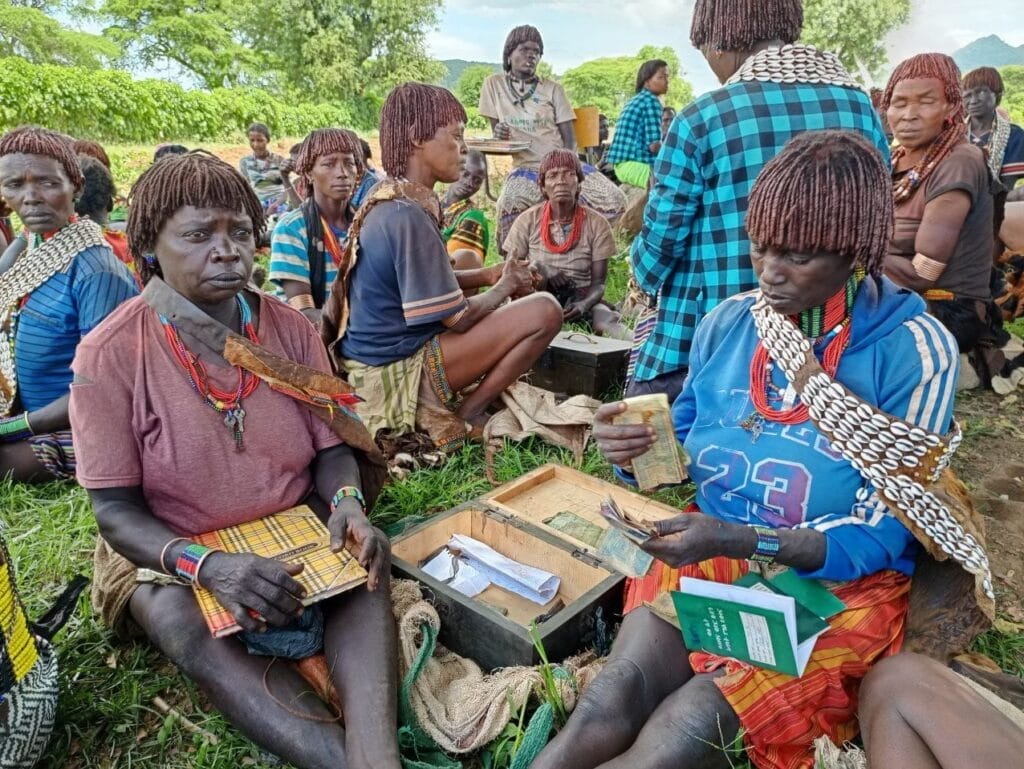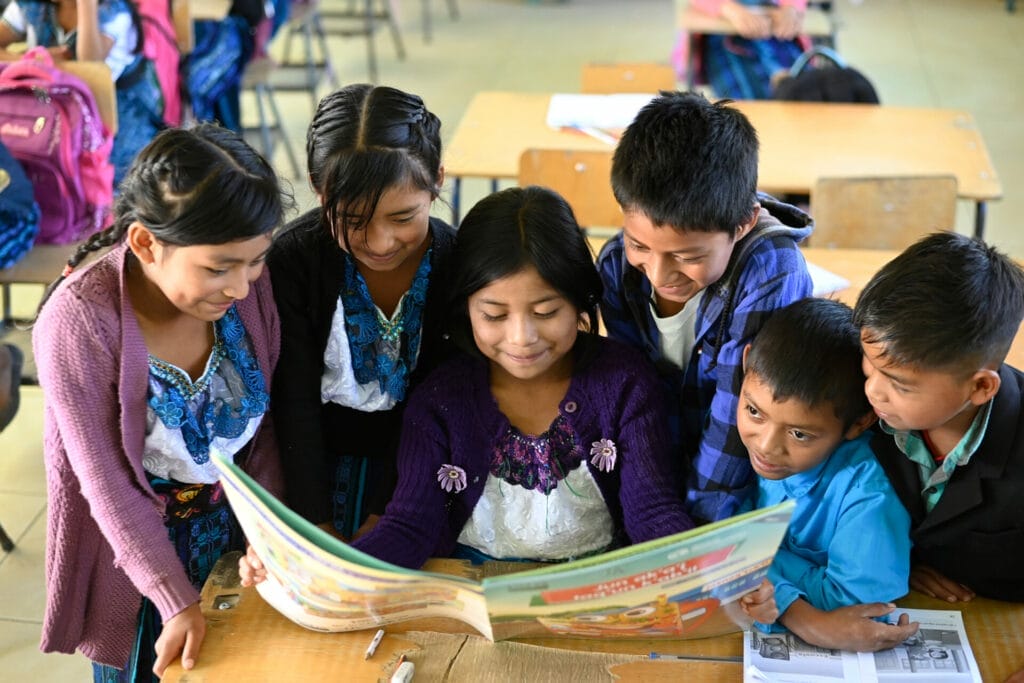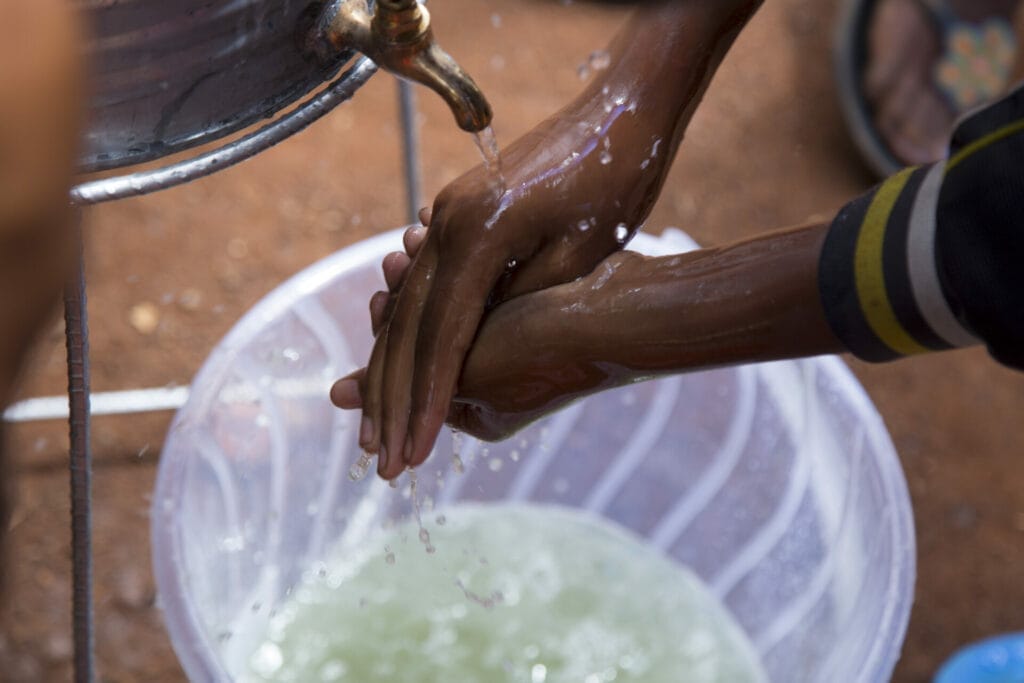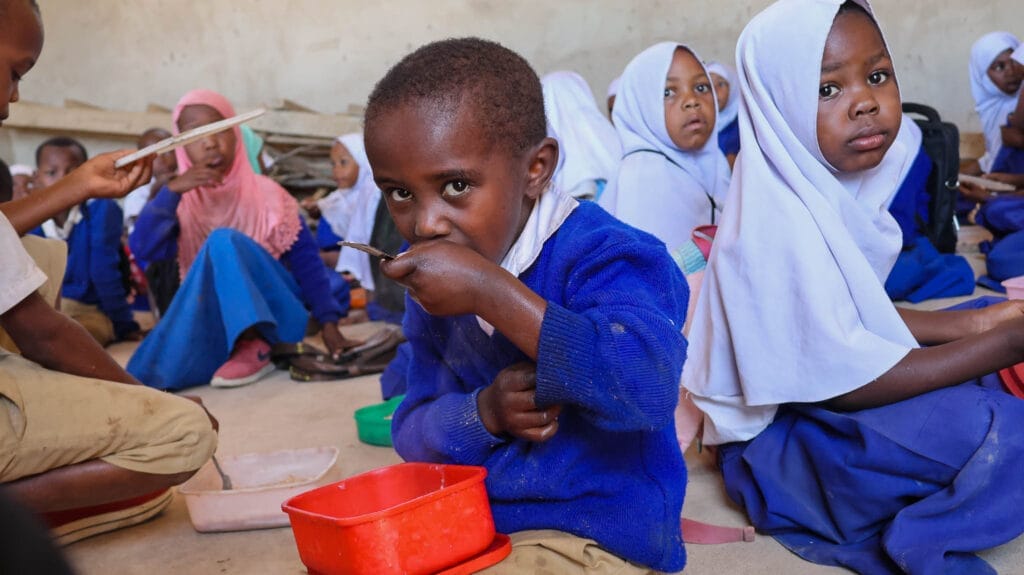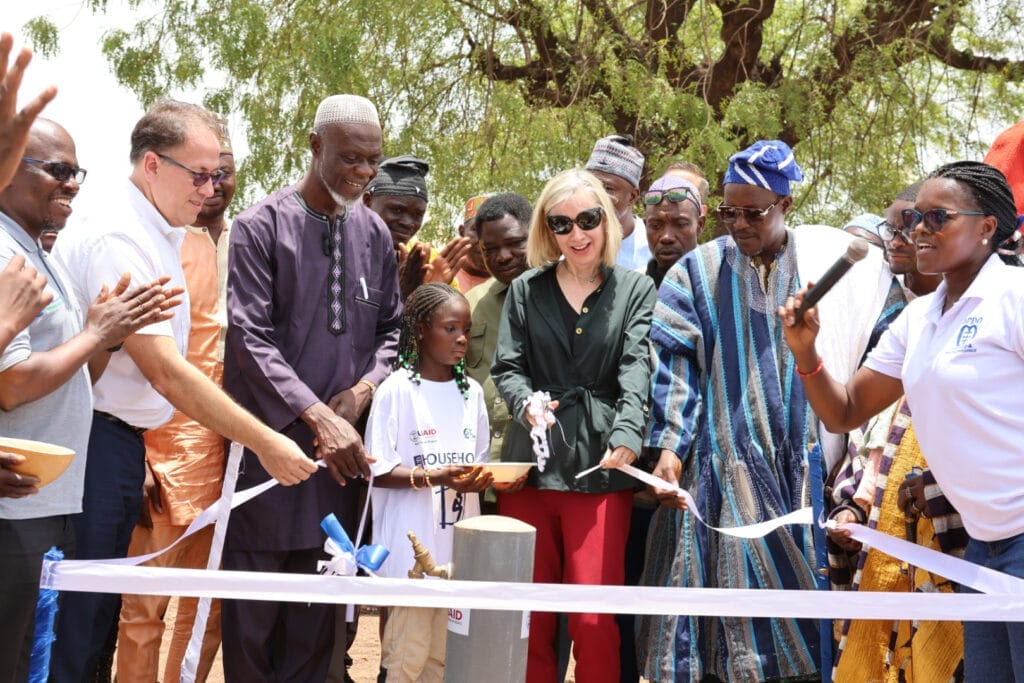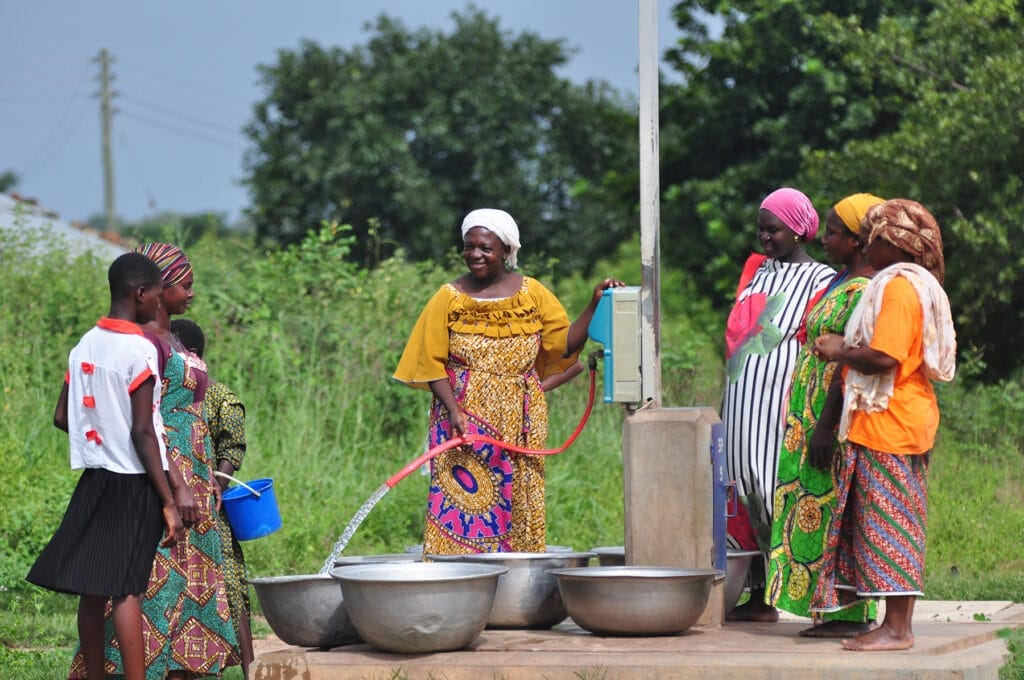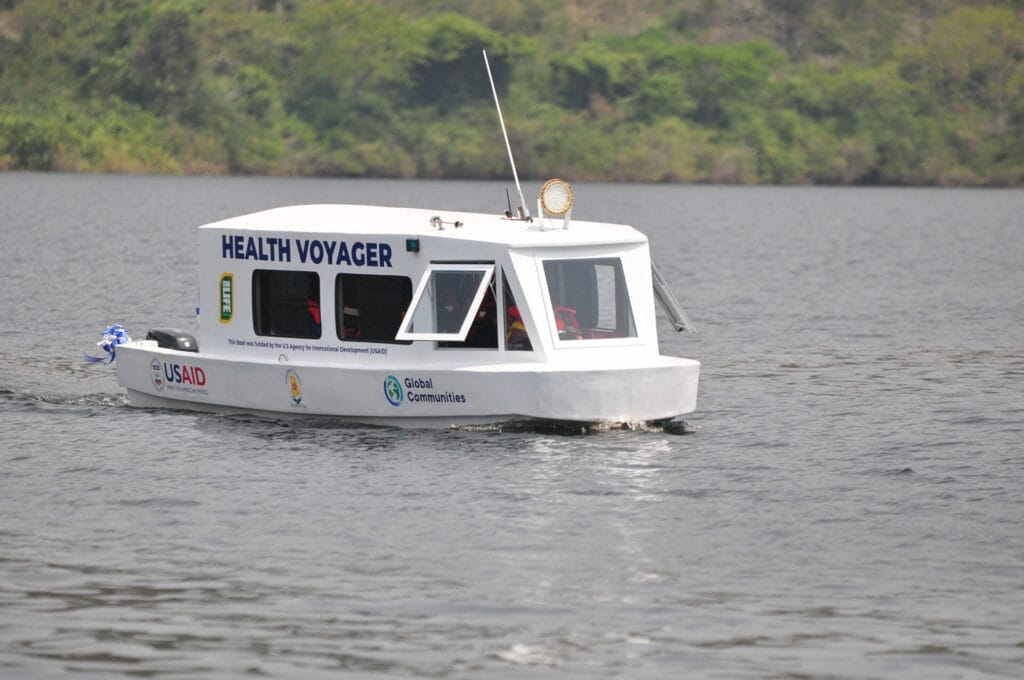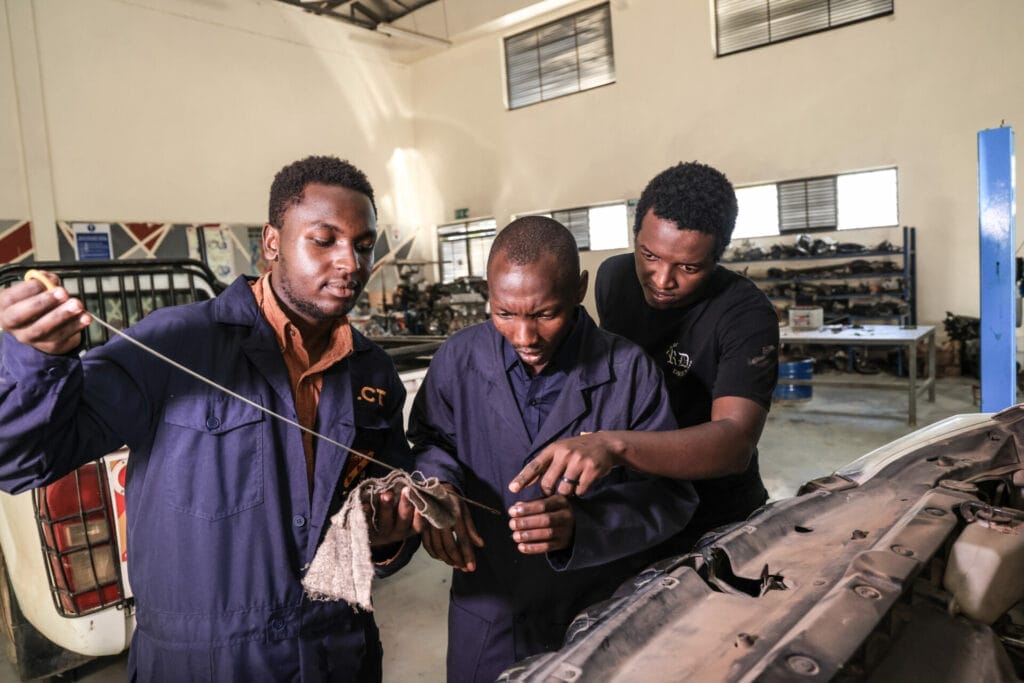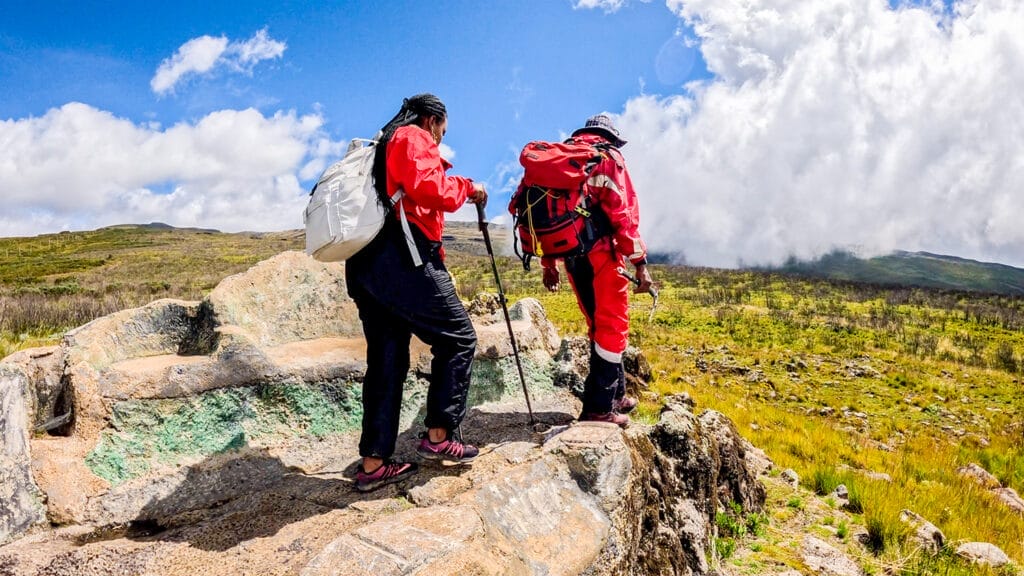How Oral Information Management Tools Boost Women’s Financial Literacy and Savings in Ethiopia
By Jessica Ayala, Sr. Manager for Digital Communications Savings groups—often referred to as informal community banks—are small groups of people who save together and lend to each other from their pooled funds. Globally, as many as 500 million people belong to savings groups. Approximately 80% of members are women, and many savings groups programs are…
Read MoreLocal Plumber Turned Entrepreneur Champions Sanitation for All in Ghana
In the bustling district of Sagnarigu, Ghana, one name is quickly becoming synonymous with positive change: Awal. As a Digni-Loo entrepreneur under Enhancing WASH (En-WASH), an activity funded by the United States Agency for International Development (USAID), Awal has turned his vision of sustainable sanitation into a reality, one toilet at a time. Awal’s journey…
Read MorePromoting Evidence-Based Approaches to HIV: Our Posters at AIDS 2024
By Paula Rudnicka, Sr. Manager for Public Affairs In July 2024, more than 11,000 people attended AIDS 2024 – the largest gathering on HIV and AIDS in the world. Global Communities and our subsidiary IntraHealth International showcased our work through five posters, which highlighted the results of studies conducted by our HIV projects in Central…
Read MoreThe Role of International Organizations in the Localization Movement: Insights from Our Partnership with Project Concern Zambia
By Chioma Okafor, Senior Technical Advisor, Local Capacity Strengthening The global development community has reached the consensus that local leadership is vital to achieving greater equity, effectiveness and sustainability of development programs. Local actors are closer to the issues, understand local needs and priorities, and can more efficiently address barriers to accessing services, including health…
Read MoreAdapting for the Future Defined by Locally-Led Development: A Q&A with Our President Carrie Hessler-Radelet
By Paula Rudnicka, Sr. Manager for Public Affairs. Video production by Kallista Zormelo and Michael Kamel. Localization is one of the most significant movements shaping our industry today. Major donors are beginning to focus their philanthropy on those who are closest to the knowledge, action and impact. The shift towards localization is reshaping the role of…
Read MorePromoting Bilingual Education in Multicultural Societies to Enhance Student Literacy
By Leonel Arguello, Director of Integrated School Feeding Programs As a Nicaraguan, I grew up in a multiethnic, multicultural and multilingual country with a large Indigenous population. English and French were the mandatory languages in public and private schools during my school years. Sadly, we were never taught our Indigenous languages, not even simple phrases…
Read MoreShifting Tides: Advancing Locally-Led Development & Humanitarian Action
By Paula Rudnicka, Sr. Manager for Public Affairs The concepts of localization and locally-led development are deeply woven into the current discourse about the state and the future of global development. Rooted in social movements that fought to end colonization, the localization agenda gained global traction in 2016 at the World Humanitarian Summit. Its two…
Read MoreWomen-Founded Cooperative Leads Solar Energy Innovation in Kenya
By Maryangela Amendola One phone call changed Jacinta’s future. In 2015, a college friend told her about a renewable solar energy training program provided by Arizona University and funded by the United States Agency for International Development (USAID). She left her career as an engineer and aviation teacher in Mombasa County, Kenya, to pursue the…
Read MoreIgniting Children’s Potential, One Bite at a Time: Reflections from the International Food Aid Showcase
By Paula Rudnicka, Sr. Manager for Public Affairs Last month, Global Communities participated in the 2024 International Food Aid Showcase at the United States Department of Agriculture (USDA). The showcase brought together diverse stakeholders representing all segments of the U.S. food assistance value chain—from farmers to implementing partners and government agencies. At the beginning of…
Read MoreThe Role of Mianatra in Enhancing School Attendance and Health in Madagascar
Until early 2023, EPP Toby Mahatsinjo, a primary school in the chronically food insecure Androy region of Madagascar, faced significant challenges related to water, sanitation and hygiene, nutrition and the overall health of students. The school lacked onsite access to water or latrines, and students were expected to use a shared latrine housed at the local…
Read MoreSchool Feeding Interventions as a Tool for Addressing Child Malnutrition: Experiences from Tanzania, Guatemala and Madagascar
By Betty Adera and Chloe Pan Malnutrition remains a pressing global issue, affecting millions of children and impeding their growth, development and well-being. It manifests in various forms, including undernutrition, micronutrient deficiencies and obesity. Each form has severe consequences for children. In 2022, the World Health Organization estimated that globally, 149 million children under five…
Read MoreCommissioning Ceremony Marks Milestone for Water Accessibility in Northern Ghana
On April 18, a historic event unfolded in Nawuhugu, located in the Northern Region of Ghana, as community members, local chiefs, esteemed dignitaries and stakeholders gathered to witness the commissioning of a vital water system. The event, organized by Global Communities Ghana, marked a significant milestone in our ongoing efforts to improve water accessibility and…
Read MoreAdapting and Innovating in a Volatile World: Reflections from the 2024 Fragility Forum
By Paula Rudnicka, Sr. Manager for Public Affairs Last month, the World Bank held its 2024 Fragility Forum – a biannual conference that brings together policymakers, researchers and practitioners from humanitarian, development and peacebuilding communities to exchange knowledge and ideas about how to improve our approaches in fragile, conflict and violence-affected settings. This year’s theme…
Read MoreStrengthening Economic Opportunities for Women Entrepreneurs through Cooperatives
By Ashley Holst Cooperatives are leaders in promoting inclusive economic growth by providing equitable and accessible solutions to economic and social stressors. Two of the seven principles of cooperatives are “voluntary and open membership” and “concern for community,” both of which call upon cooperatives to create opportunities for all people and to put the betterment…
Read More‘Game-Changing’ Water System Introduced in Northern Ghana
In the heart of the Bole District in Northern Ghana lies the serene and welcoming Mandari Community, a place that has seen significant transformation thanks to Global Communities and the United States Agency for International Development (USAID). A solar-powered mechanized water system was introduced there as part of the USAID-funded WASH for Health program, making…
Read MoreBridging Healthcare Gaps for Island Communities in Ghana
In a momentous step towards revolutionizing healthcare accessibility for secluded island communities in the Oti region of Ghana, the United States Agency for International Development (USAID), in partnership with Global Communities, orchestrated the commissioning and handover ceremony of the groundbreaking “Health Voyager” boat. The event was held on Feb. 29, at the Volta Lake Transport…
Read MoreDriving Change: Youth-Led Worker Cooperative Transforming Kenya’s Automotive Industry
By Tindi Sitati and Mike Kipngeno Rooted in the energy of youth, the Transparency Auto Worker Cooperative was created in 2022 through a collective vision of former automotive engineering students from Eastlands College of Technology (ECT) in Nairobi County, Kenya. The cooperative, which currently supports 22 active members, is a response to the pressing challenges…
Read MoreGenerating Job Opportunities for Mountain Guides and Porters in Kenya
By Tindi Sitati and Mike Kipngeno Nestled within the scenic landscapes of Nyeri County, Mt. Kenya Guides and Porters Safari Worker Cooperative stands as an inspiring example of the transformative influence of the worker cooperative model in Kenya’s tourism sector. Originating as an informal group in 1971, the cooperative has since flourished into a vibrant…
Read More
